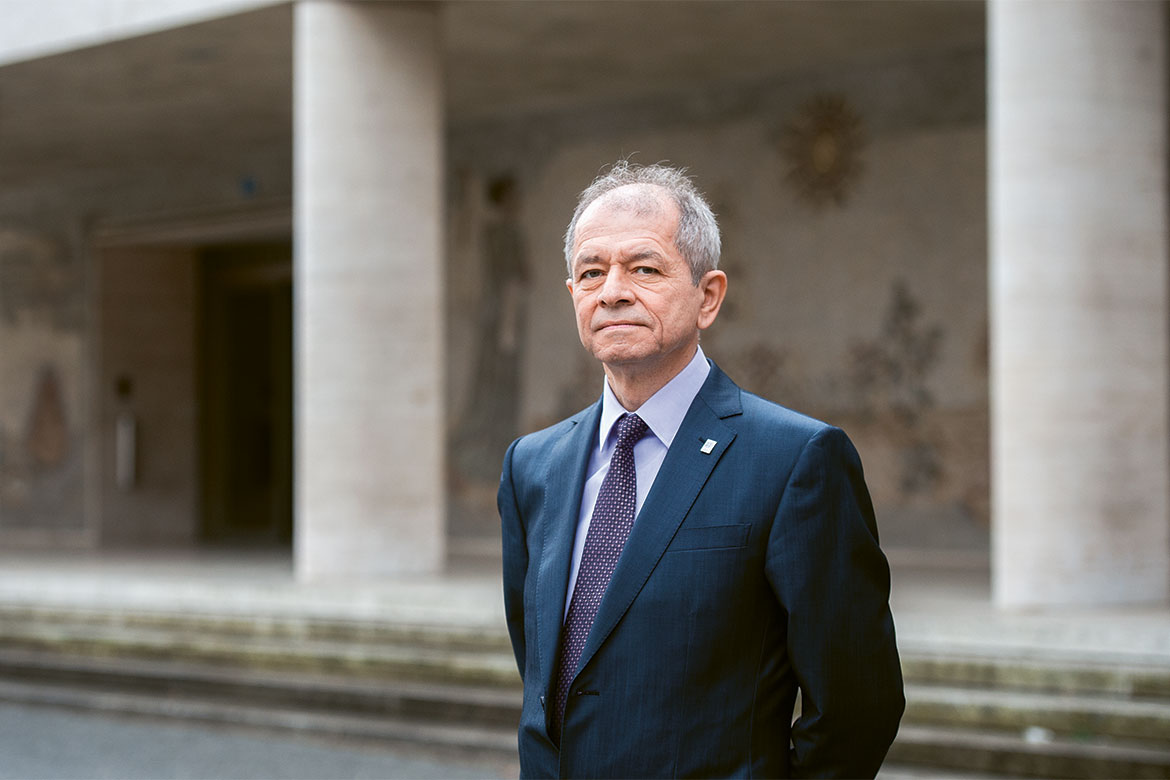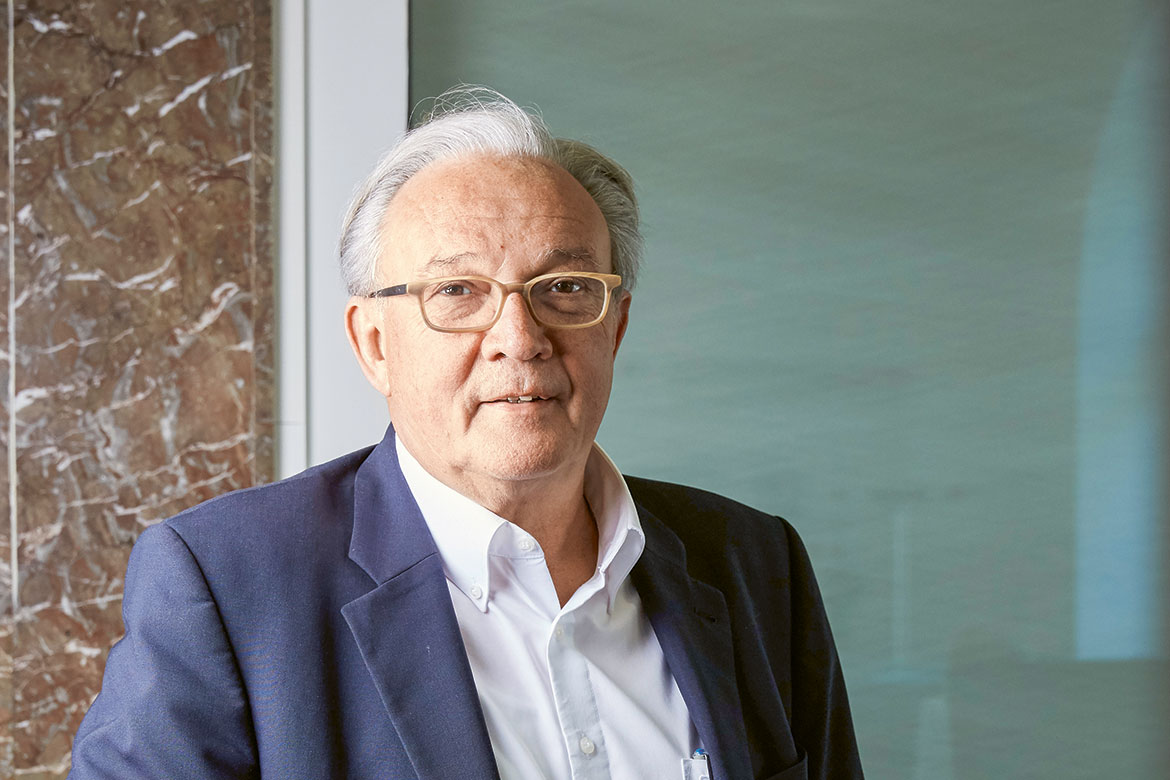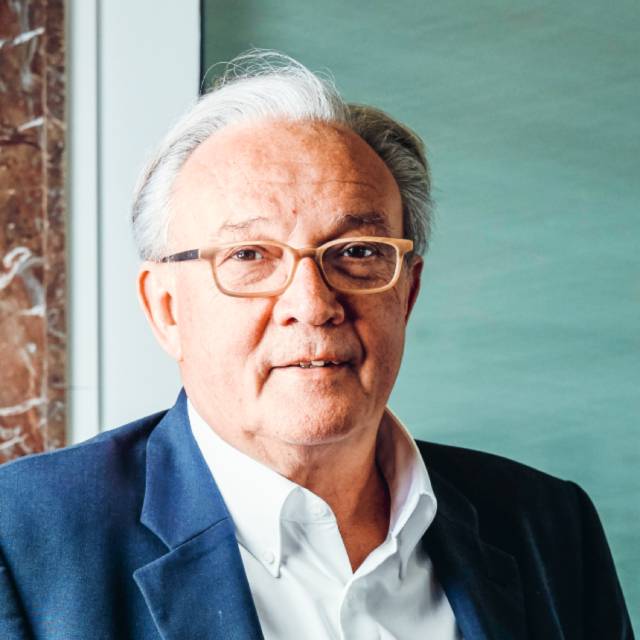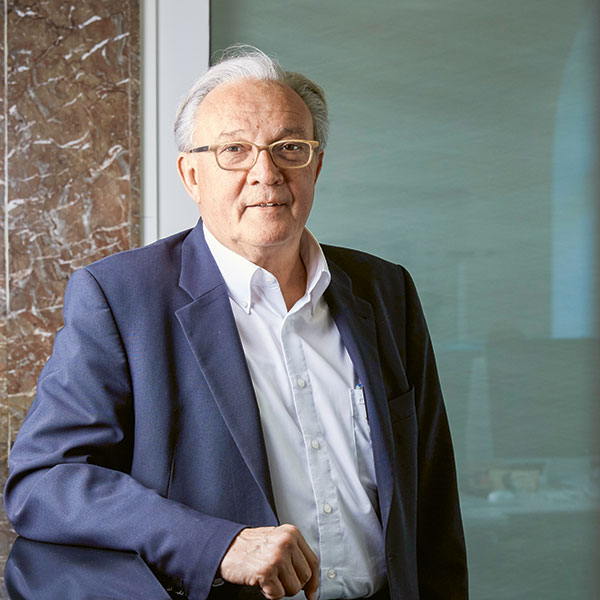“The voice of the Academies is the voice of science and scholarship”
As President of the Swiss Academies of Arts and Sciences, Antonio Loprieno wants to promote dialogue between science and society.

Antonio Loprieno wants to establish the Swiss Academies of Arts and Sciences as a brand. | Image: Valérie Chételat
Prof. Loprieno, scepticism is growing towards scientific facts. As President of the Academies of Arts and Sciences, how do you intend to counter this?
The role of President seems predestined to deal with this growing cleft. If the Academies have a primary function, then it’s to build bridges between science and society. The voice of the Academies is the voice of science and scholarship. That makes it all the more urgent to promote dialogue with the public and to present a credible voice that emphasises the vital interpretative importance of science.
How would you estimate the influence of the Academies on debate in society?
That’s a tricky question. I believe it’s not always easy for the Academies. That’s because they possess a particular strength that in this case comes across as a weakness: their diversity as umbrella organisations each with different specialist cultures. This diversity ensures that we stay close to science. But it is less ideal when you have to defend certain issues in public. Overall, we could achieve more.
Can you name one measure that would help to build a bridge between science and society?
As often as possible, the Academies should speak with one voice. If we could establish the “Swiss Academies of Arts and Sciences” as a ‘brand’ in public discourse, in politics or in social media, that would be a suitable initial measure that could showcase the work we’ve already done. And for this, keeping the link to our scientists and scholars themselves is crucial. That’s the President’s balancing act.
According to their own estimates, the Academies are the biggest and at the same time the most cost-effective scientific and scholarly network in Switzerland. Do they need to be ‘professionalised’?
The word ‘professionalisation’ has a good and a bad connotation in the academic world. If you mean ‘professionalisation’ in the sense of a harmonisation that helps us to represent the common interests of different stakeholders, then yes. But if you mean setting up a bureaucracy that would duplicate existing forms of support for science and scholarship: then no. The Academies should be there primarily to support scholarly and scientific concerns that are not supported by other institutions.
For example?
Interdisciplinarity. It’s difficult to promote this approach. The Academies are the best structure for doing that – in fact, they’re predestined for it. For successful scientists, it’s simpler to venture into interdisciplinarity than it is for young researchers who first have to establish a career for themselves.
What other fields will you be concerned with?
Digitisation. In this field, I’m excited by the current cultural shift that’s taking place. It’s comparable to the changes that book printing brought about in the Renaissance. Up to now, our knowledge was the knowledge of individuals – such as professors who explain things that their students don’t yet know. In the digital society, we are confronted with social knowledge that queries the very issue of authorship. Wikipedia, for example, offers consolidated knowledge that has many authors. That’s a radical shift.
And what appeals to you about your new task?
In my dual function as the President of the Swiss Academies of Arts and Sciences and of the All European Academies (ALLEA), I first have the privilege of representing our science and scholarship on a European scientific and political level. Secondly, as a scholar I find it interesting to be able to shape the inclusion of science in our societal discourse. A third aspect is institutionalisation. As specialist societies, the Academies have very different cultures, and to be able to represent them will be a delightful task.
Do the Academies need to be rejuvenated?
There’s already a project to this end. And as ALLEA President too, I would welcome a rejuvenation of the Academies in Europe. At a time when promoting young researchers is a big topic, we can’t let the Academies remain an old gentleman’s club. We urgently need to become more attractive to younger researchers.
Pascale Hofmeier is a science editor at the SNSF.




